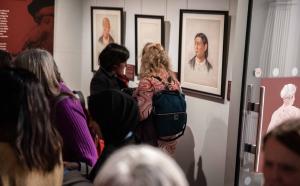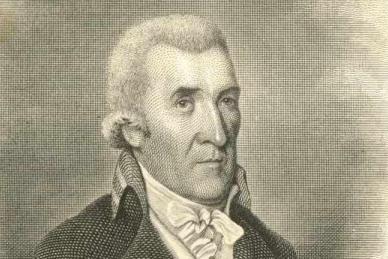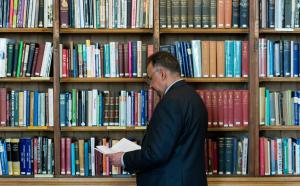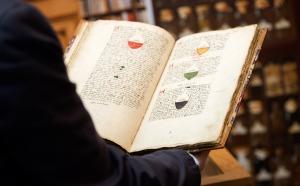
William Wright
(March 1735 – 19 September 1819)
College Role:
President

Notable Achievements
In 1788, Wright was elected fellow of the Royal Society of Edinburgh, member of the Society of Natural History of Edinburgh, and a member of the Royal Physical Society of Edinburgh.
In 1808, Wright became a founder member and vice-president of the Wernerian Natural History Society.
Key Publications
Wright’s writings consist of a number of individual papers.
- Memoir of the Late William Wright (1828) includes eighteen papers written by Wright on botany and tropical medicine.
Biography
William Wright was born in March 1735 in Perthshire to a humble family, although his father’s profession is unknown. After early schooling in Crieff, Wright was apprenticed to a local surgeon in Falkirk. In 1756, Wright attended medical lectures at Edinburgh University, but did not obtain a degree. In 1757, he sailed to Greenland as a ship’s surgeon on a whaler. In January 1758, Wright presented himself for examination at the Surgeons’ Hall in Edinburgh and was subsequently appointed surgeon’s mate on a Royal Navy warship. Late in 1759 he was promoted to surgeon’s first mate. He remained in service in the West Indies until the end of the Seven Years’ War. In this period, Wright was exposed to the ravages of diseases on non-immune British troops as well as slavery within the island colonies of the empire. Wright returned to Britain in September 1763.
Wright improved his qualifications, obtaining the qualification of surgeon and receiving his MD in absentia from St Andrews. Wright left for Jamaica in 1764, hoping to establish a practice there, but there were already too many doctors. He was forced to become an assistant for Dr Gray on a sugar plantation 150 miles from Kingston, with whom he invested his savings into slaves. An old friend from his time at Edinburgh University offered him a partnership in a medical practice at Hampden estate in Jamaica. This practice was responsible for the medical care of 1200 slaves and the local free population. In this period, Wright began his study of botany and became a collector of Jamaican plants. In 1774 he was appointed Surgeon-General of Jamaica.
Wright left Jamaica in 1777 for London where he furthered his knowledge of obstetrics, botany and medicine. Wright returned briefly to Edinburgh, attending lectures at Edinburgh University, before embarking again on his travels in 1779. By this point, Wright was known as a significant contributor to botanical knowledge and had an important role as collector and naturalist. Wright accepted the position of regimental surgeon to the Jamaican regiment, although he was captured and made a prisoner of war in Spain. Wright escaped and returned to England in 1780 before returning again to Jamaica, where he would stay from 1782 to 1785.
Wright returned to Britain in September 1785 and settled down in Edinburgh, having secured the sale of his property in Jamaica. Wright was ready to immerse himself in the scientific societies and gentlemanly culture of the burgeoning mercantile city. Wright was politically conservative and, as a slave owner, opposed the abolition of the slave trade.
Wright became physician to the army and director of military hospitals in Barbados from 1796 to 1798. This position was offered to him because of his expertise in tropical diseases and earned him the recognition he desired. Wright was now an important figure reaching the peak of his professional success. Wright continued his participation in botanical collecting. His Caribbean plant specimens had become part of the collection of many important British naturalists. Wright never married, but adopted his nephew whom he trained in the medical profession. He died in Edinburgh on 19 September 1819.



